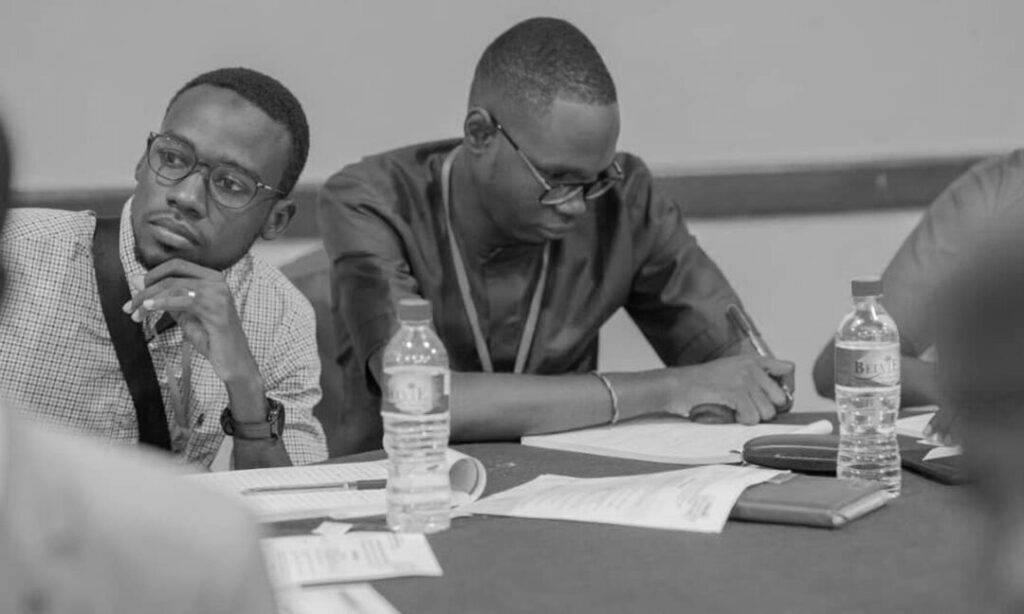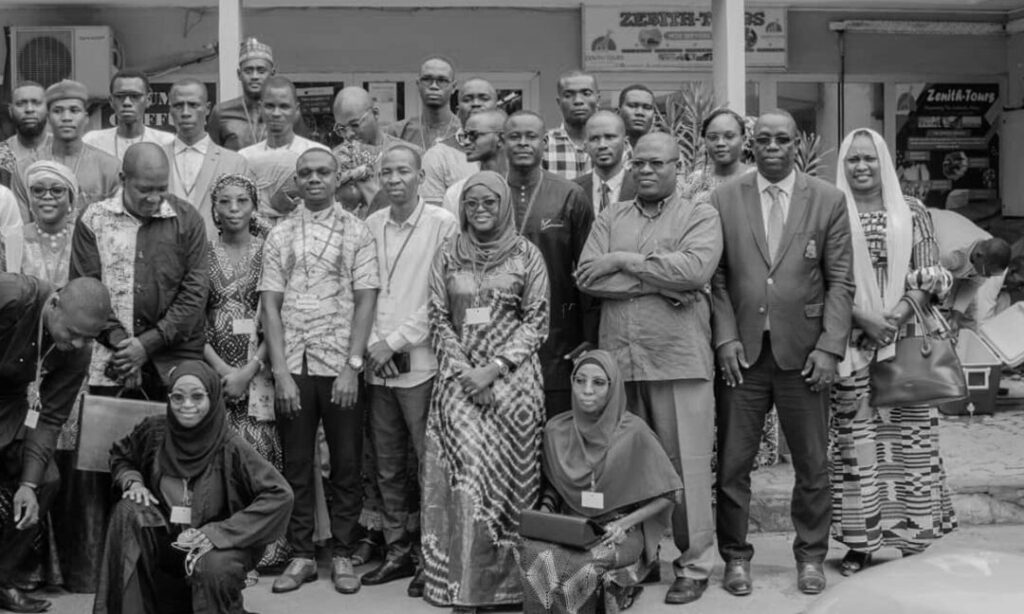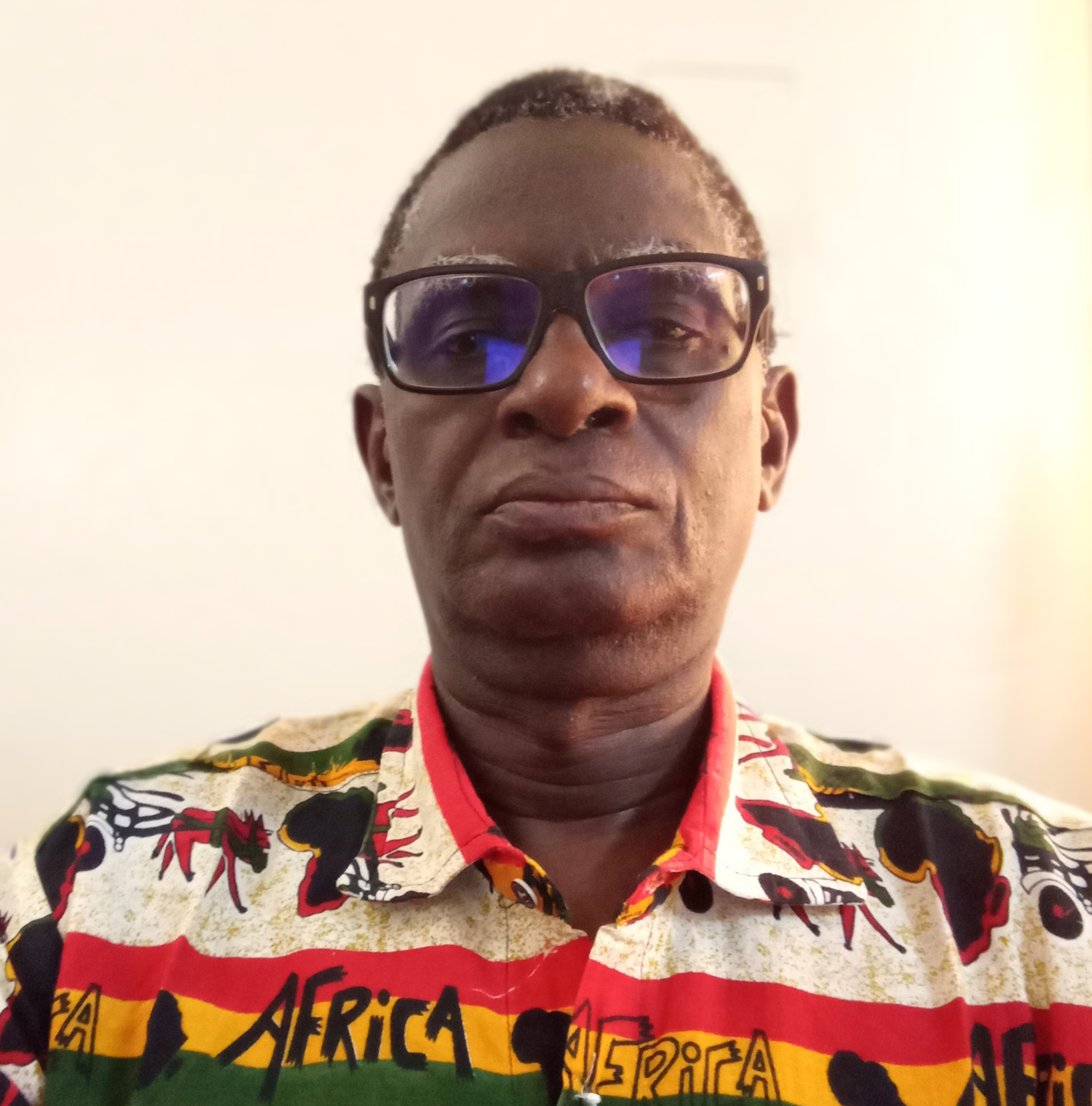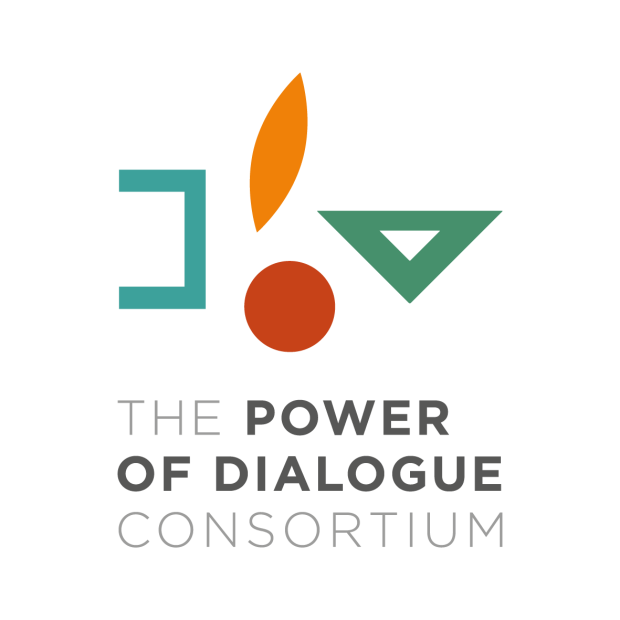Niger
Country


- NIMD in Niger: At a glance
- What we do
- How we do it
- Meet the team
Main objective
To help political and civic actors: work together; ensure diverse voices are heard; and actively participate in shaping inclusive political processes that reflect the needs of citizens.
Results
At the close of our Young Democrats Forum, over 100 young participants drafted a memorandum – a powerful statement of their vision for Niger’s future. This contribution feeds into the country’s inclusive national dialogue, a process led by the authorities to shape the country’s transition to democracy. The memorandum is a key step towards making young voices heard in Niger’s journey toward a more democratic and inclusive future.
Following a Democracy School session, 30 young people from various political affiliations organized a meeting at the headquarters of an opposition party. During this meeting, they engaged in dialogue on youth participation in their respective parties’ decision-making bodies. This marked a realization among the young participants that, beyond their political differences, they share common challenges. They agreed to continue to work together, because only a united approach can bring about meaningful change.
Following the 2023 coup, we collected citizen feedback and people’s ideas for a successful democratic transition. We surveyed 542 people from across the country. To ensure their views, ideas and standpoints were heard, we organized two large-scale conferences, bringing together more than 300 people, including regional authorities. It was a key moment for citizens to share their voices and expectations with those involved in shaping the democratic transition.
Niger: Political background
Following years of political uncertainty and insecurity, Niger achieved a historic milestone in 2021 with its first peaceful democratic transfer of power, as an elected president succeeded the incumbent.
The years that followed were generally politically stable. While progress on reforms and political dialogue was slow, President Bazoum did pledge to enhance democratic governance, raising hopes for a more inclusive and stable future.
However, those hopes were dashed on 26 July 2023, when a coup d’état ended 12.5 years of democracy in Niger.
The coup marked a significant shift in Niger’s domestic and international politics, redefining its alliances and governance trajectory. While the military junta has committed to reinstating democracy, there is still no clear timeline. What’s more, suspension of political party activities and restricted press freedoms, have raised concerns about the inclusiveness and transparency of the proposed transition.
As a result, Niger’s political landscape remains complex, and its future unpredictable. A sustainable return to democracy will require an open and inclusive transition process that addresses the needs of Niger’s citizens.
What we do
NIMD has worked in Niger since 2020, where we help political and civic actors: work together; ensure diverse voices are heard; and actively participate in shaping political processes.
Our focus is on fostering collaboration and inclusiveness, supporting political and civic actors to build processes that are fair and open, and ensuring those reflect the needs and interests of all citizens.
In the context of the 2023 coup d’etat, we believe that this work is now more important than ever. Because democratic transitions – like many periods of transformation – offer a unique chance to set the foundations for a more inclusive and responsive future.
To contribute to this future, we work with young people and women to amplify their voices, and we offer opportunities to influence political processes. We promote democratic values and teach leadership skills through training, dialogue and our Democracy School. And we create spaces where citizens and leaders can connect – through forums, roundtables, and surveys – to ensure decision-making processes are inclusive, transparent and responsive to the needs of all Nigeriens.
Lastly, we recognize the value of regional collaboration, and build on the insights and connections from our programmes in Mali and Burkina Faso. We also bring political and civic leaders together across geographical divides, creating opportunities for them to identify shared challenges, exchange practical solutions, and build a sense of collective purpose. This regional collaboration fosters solidarity and coordinated approaches to address the complex realities and shared struggles of the Sahel region.
What we do: In numbers
How we do it
Democracy Education
Our Niger Democracy School brings together young leaders from political parties and civil society to enhance their knowledge, capacity to influence politics and ability to thrive as political leaders.
Coming together for a series of interactive training sessions, the diverse participants also build trust across political and ideological divides. On leaving the school they are equipped not only with knowledge and skills, but also a network of young aspiring leaders, committed to laying the foundations for an inclusive democracy in Niger.
Beyond our School in Niger, we also provide opportunities for our participants to network with their counterparts in Burkina Faso and Mali. We organize virtual Masterclasses, where the young leaders can exchange ideas and experiences. By fostering these connections, we aim to nurture a sense of shared purpose and broader perspectives that can contribute to collaborative solutions across the region, both now and in the future.
"Our Schools shape a network of young aspiring leaders, committed to laying the foundations for an inclusive democracy in Niger."
Youth in politics
Niger is one of the world’s youngest countries, and creating connections between decision-makers and young people is crucial, as is opening up pathways for young people to have a voice in the future of their country. Much of NIMD’s work in Niger – including our Democracy School – is focused on enhancing the capacity of young people and increasing their political and civic engagement.
Through roundtables and political cafés, we also provide platforms for open and meaningful discussions on pressing current issues. These spaces give young people the opportunity to engage in dialogue, share diverse perspectives and practice democratic expression. Often, the debates lead to contrasting opinions, fostering critical thinking and lively exchanges on key topics.
These events are complemented with intergenerational dialogues, which bring young civic and political leaders together with experts and political decision-makers. The participants have the chance to build their networks; hold decision makers accountable; and use their voices to influence the political decisions that will shape their country’s future.
Women in politics
Alongside our work with young people, we recognize the importance of women’s political participation in Niger. Women make up half of the population, and their diverse voices are essential to ensuring an inclusive and democratic future that truly represents all Nigeriens.
This starts with recognizing the need to truly understand the barriers to participation. In our first year working in Niger, NIMD teamed up with the Westminster Foundation of Democracy to produce a report on the Cost of Politics in Niger. The report showed that many women are excluded from entering and participating in politics because they cannot afford it. These findings, along with our recommendations, have laid the foundation for efforts to address these barriers and foster inclusion.
Beyond this, we include gender equality on our Democracy School curriculum, and facilitate dialogues on inclusive politics, as well as ensuring an equal representation of women and men across all our activities. By working with women (aspiring) leaders through our Democracy School, NIMD ensures they can build the leadership skills necessary to navigate the challenges of public life. These efforts help women not only enter the political arena but also become influential voices equipped to shape the future of their country.
"Women’s diverse voices are essential to ensuring an inclusive and democratic future that truly represents all Nigeriens."
Responsive politics
Prior to the 2023 coup d’etat, NIMD ran the Présimètre project, a system of collecting citizen feedback to ensure citizens had a chance to influence decision makers.
Following the coup, we continue to collect valuable citizen feedback using these mechanisms. Our large-scale surveys collect important perspectives on the transition to democracy, and are accompanied by conferences with regional authorities. By amplifying citizens’ views, and providing space for dialogue with decision makers, we hope to ensure all voices are heard at this crucial moment in Niger’s history.
Meet the team
 Ibrahima Ba
Country Director, NIMD Niger
Read more
Ibrahima Ba
Country Director, NIMD Niger
Read more
Get in touch directly with NIMD Niger via nimdniger@nimd.org
Ibrahima is the Director of NIMD’s office in Niger. 38 years of experience in both Nigerien public administration, and bilateral cooperation agencies and NGOs have equipped him with the ability to work in fragile contexts. With expertise in democratic governance, public policy and management, he has worked on projects related to governance, conflict management, and the administration and evaluation of development and programmes in Niger.

Get in touch directly with NIMD Niger via nimdniger@nimd.org
Ibrahima is the Director of NIMD’s office in Niger. 38 years of experience in both Nigerien public administration, and bilateral cooperation agencies and NGOs have equipped him with the ability to work in fragile contexts. With expertise in democratic governance, public policy and management, he has worked on projects related to governance, conflict management, and the administration and evaluation of development and programmes in Niger.
Who we work with

NIMD’s work in Niger is funded by the Dutch Ministry of Foreign Affairs under the Power of Dialogue programme. The Power of Dialogue consortium is made up of NIMD, Gorée Institute, Akina Mama wa Afrika, and Centre des Études Méditerranéennes Internationales, and seeks to enhance collaboration among political and civic actors to participate in accountable political processes.

Swiss Agency for Development and Cooperation
We are also grateful for funding from the Swiss Agency for Development and Cooperation for the implementation of our Democracy School.

 Facebook
Facebook